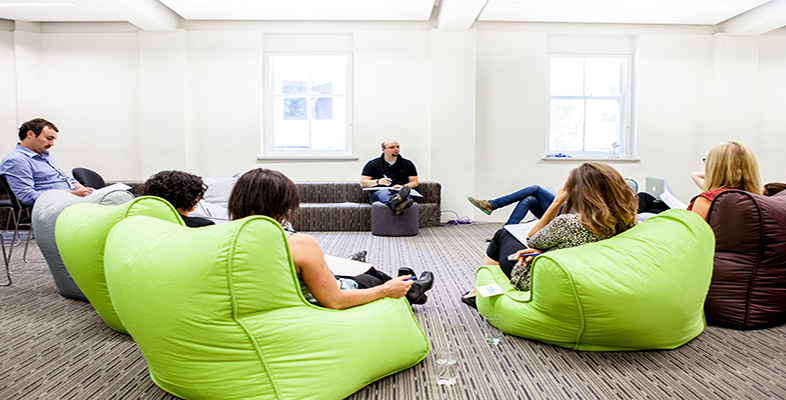6.5 Complainers
An individual is continually complaining about the organisation’s policies and the way things are done.
The challenge
- Individuals become ‘stuck’ on policies and procedures that they perceive as blockers to getting any constructive work done.
- People talk over each other, not hearing other’s view points and ideas.
- Some groups have developed an entrenched pattern of thinking having been at an organisation for a long time.
- People may be resistant to change the status quo.
What’s really going on
- Group members have been disillusioned when their actions have been blocked in the past by policies and procedures.
- Individuals disagree strongly with policies and procedures and want to express their opinion.
- There is a misfit between the individual and organisation type.
- Individuals are cynical about the task in hand and/or feel that they do not have the authority to make a difference – so why bother?
- People may have developed an ‘us against them’ attitude.
Facilitator pitfalls
- Ignoring the comments and forging ahead with the meeting.
- Cajoling members into being more cynical.
- Criticising the individual for being cynical.
- Allowing the individual to derail the meeting without making an intervention.
- Allowing the discussion to continue without checking with the rest of the group to see if the discussion is one that they want to pursue.
Intervention strategies
- Do your homework beforehand to see if the group do have the authority to make decisions in the session.
- Explain that policies cannot be changed in the session, and that its purpose is to help everyone to work as best they can within the system. Focus on areas the group can affect.
- If none of the above interventions has an impact, take over-talkers aside and give them feedback in a way that encourages them to take responsibility for their actions in future meetings:
'Focusing on policies that cannot be changed hinders the positive work that can be done. Do you have any ideas that can help work around the policies that we do have influence or control over?'
